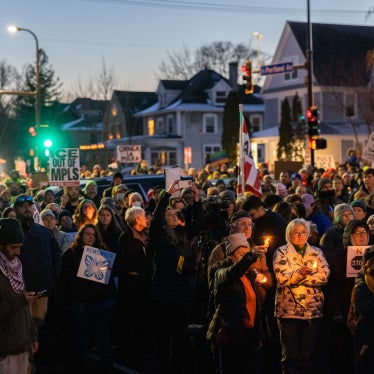I met “Sonia,” a farmworker in upstate New York, in August. She and her husband had managed to scrape together $3,000 for a down payment on a house. After two years of making mortgage payments, they discovered the seller had never transferred the title to them. They are being evicted from the home they thought was their own.
What would you do if you were Sonia? Hire a lawyer?
Sonia and her husband tried to do just that, but as they started to seek recourse in the legal system, the seller threatened to call immigration. Sonia is an undocumented immigrant.
If Sonia were in Alabama, she would be barred from seeking justice in its courts. In addition to other abusive provisions, Alabama’s new immigration law declares that its state courts will not uphold any contracts involving undocumented immigrants.
But even outside of Alabama, Sonia essentially lacks access to justice. Hispanics in Alabama may be leaving the state, but undocumented immigrants all over the country, even in supposedly more migrant-friendly states like New York, have told me that they are living underground and in fear. They describe how drastically their lives have changed in the last couple of years—they rarely leave their homes, not to attend activities at their children’s schools, sometimes not even to get groceries. As years go by without any action in Congress to propose realistic and comprehensive legislation to address illegal immigration, the U.S. is creating a large underclass of people who are extremely vulnerable to crime and abuse.
Legal service providers in Raleigh, North Carolina report that undocumented immigrants face the same problem Sonia did. Since undocumented immigrants cannot get legal title to the cars or mobile homes they buy, sellers often don’t actually transfer the property to the buyers. The Latino Outreach Center in the Blue Ridge Mountains frequently receives reports from day laborers that local homeowners who hired them to rake leaves and do other small jobs have refused to pay them, knowing they can get away with it.
Undocumented immigrants have long been afraid of government officials, but that fear is now translating into a fear of the justice system. Immigrants avoid going to court in communities from Fresno to Rochester, even to pay traffic tickets or to help a family member with translation, because Immigration and Customs Enforcement agents like to hang out by the courthouse. In North Carolina, a victim of domestic violence told me she would never again call the police for help after being questioned more about her immigration status than her safety the first time she called.
Supporters of Alabama’s new law, and many other state laws like it, claim they are defending law and order. But a society based on law and order requires employers to pay people who work for them. It requires transferring ownership to a person who pays for a house or a car. No child should be afraid to go to school, and no one should be afraid to seek justice. And a state’s failure to provide everybody a right to an effective remedy when they suffer abuses is a violation of international law.
When millions of people are afraid to avail themselves of their rights under the U.S. legal system, the entire system is undermined. The injustice is not only to undocumented immigrants but to U.S. society as a whole. What’s happening in Alabama and elsewhere in the U.S. makes clear that we’re nearing a crisis point: the U.S. needs to pass comprehensive immigration reform now.
Grace Meng is a researcher in the US program at Human Rights Watch.






